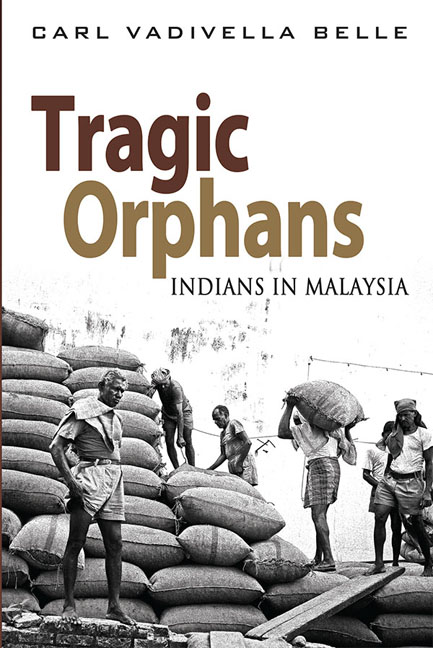Book contents
- Frontmatter
- Contents
- Acknowledgements
- List of Abbreviations
- Introduction
- 1 The Malay Peninsula: Early History, Melaka and the Colonial Setting
- 2 European Colonialism and the Malay Peninsula
- 3 India and the Development of British Ideologies of Empire
- 4 British Governance of Malaya
- 5 Slavery and Indentured Labour
- 6 Indian Indentured Labour in Malaya
- 7 Kangany Labour in Malaya
- 8 Other Indian Immigration
- 9 Indian Political Development to 1941
- 10 The Japanese Invasion, Subhas Chandra Bose and Indian Wartime Nationalism
- 11 The Post–war Period: Reform and Repression: 1945–48
- 12 From Federation to Merdeka
- 13 From Malaya to Malaysia: Singapore, 13 May and the New Economic Policy
- 14 The Mahathir Years: A Changing Malaysian Landscape
- 15 Abdullah Badawi, Islamization, and the Rise of Hindraf
- 16 Najib and 1Malaysia: A New Deal?
- Conclusions
- Bibliography
- Index
3 - India and the Development of British Ideologies of Empire
Published online by Cambridge University Press: 06 June 2017
- Frontmatter
- Contents
- Acknowledgements
- List of Abbreviations
- Introduction
- 1 The Malay Peninsula: Early History, Melaka and the Colonial Setting
- 2 European Colonialism and the Malay Peninsula
- 3 India and the Development of British Ideologies of Empire
- 4 British Governance of Malaya
- 5 Slavery and Indentured Labour
- 6 Indian Indentured Labour in Malaya
- 7 Kangany Labour in Malaya
- 8 Other Indian Immigration
- 9 Indian Political Development to 1941
- 10 The Japanese Invasion, Subhas Chandra Bose and Indian Wartime Nationalism
- 11 The Post–war Period: Reform and Repression: 1945–48
- 12 From Federation to Merdeka
- 13 From Malaya to Malaysia: Singapore, 13 May and the New Economic Policy
- 14 The Mahathir Years: A Changing Malaysian Landscape
- 15 Abdullah Badawi, Islamization, and the Rise of Hindraf
- 16 Najib and 1Malaysia: A New Deal?
- Conclusions
- Bibliography
- Index
Summary
British colonialism in Malaya imported specific ideologies of governance to administer their new colonial possessions. These ideologies, developed by British theorists in reaction to the Great Rebellion (Indian Mutiny) of 1857–58, were incorporated into the formal structures of British imperialism. Later chapters will explore how significant aspects of these ideologies, in particular those pertaining to the concept of “race”, were applied in colonial Malaya, and how in certain respects these continue to resonate within the racial policies of contemporary Malaysia.
In the period leading to the Great Rebellion, the British, through the agency of the East India Company (EIC), adopted an aggressive policy of reform based on an amalgam of three dominant ideologies, namely:
The philosophical utilitarianism of, among others, James Mill and his son John Stuart Mill, Jeremy Bentham and Baron Thomas Macaulay.
Evangelical Protestantism, seen as the principal factor underlying and sustaining the elevated character of the British ruling classes. The 1813 reform of the East India Company Act provided missionaries with the freedom to proselytize in India.
In the 1840s, free trade, portrayed as the dynamic upholding British pre-eminence and global power.
The reform programme comprised nothing less than “an ideological offensive against the foundations of Indian life”. It was assumed that under the benevolent and wise guidance of British rule — and liberated from the tyrannies of idolatry and false religions, superstition and meaningless traditions representing the dead hand of antiquity — Indians would naturally aspire to and attain the same level of civilization as post- Enlightenment Britain. This civilizing role was to become the imperial mission; a great enterprise in which British rulers would envisage themselves not so much as conquerors, but as emancipators.
The Great Rebellion thus came as a profound shock to all levels of British society in both India and metropolitan Britain. The mutineers had not only rejected the British as rulers but had also, in imperial terms, launched a direct onslaught on the entire Victorian world view and had disparaged some of the Victorians’ most cherished values. At its deepest level, the Rebellion challenged the very precepts which had informed the entire nineteenth-century imperial project.
- Type
- Chapter
- Information
- Tragic OrphansIndians in Malaysia, pp. 35 - 45Publisher: ISEAS–Yusof Ishak InstitutePrint publication year: 2014

